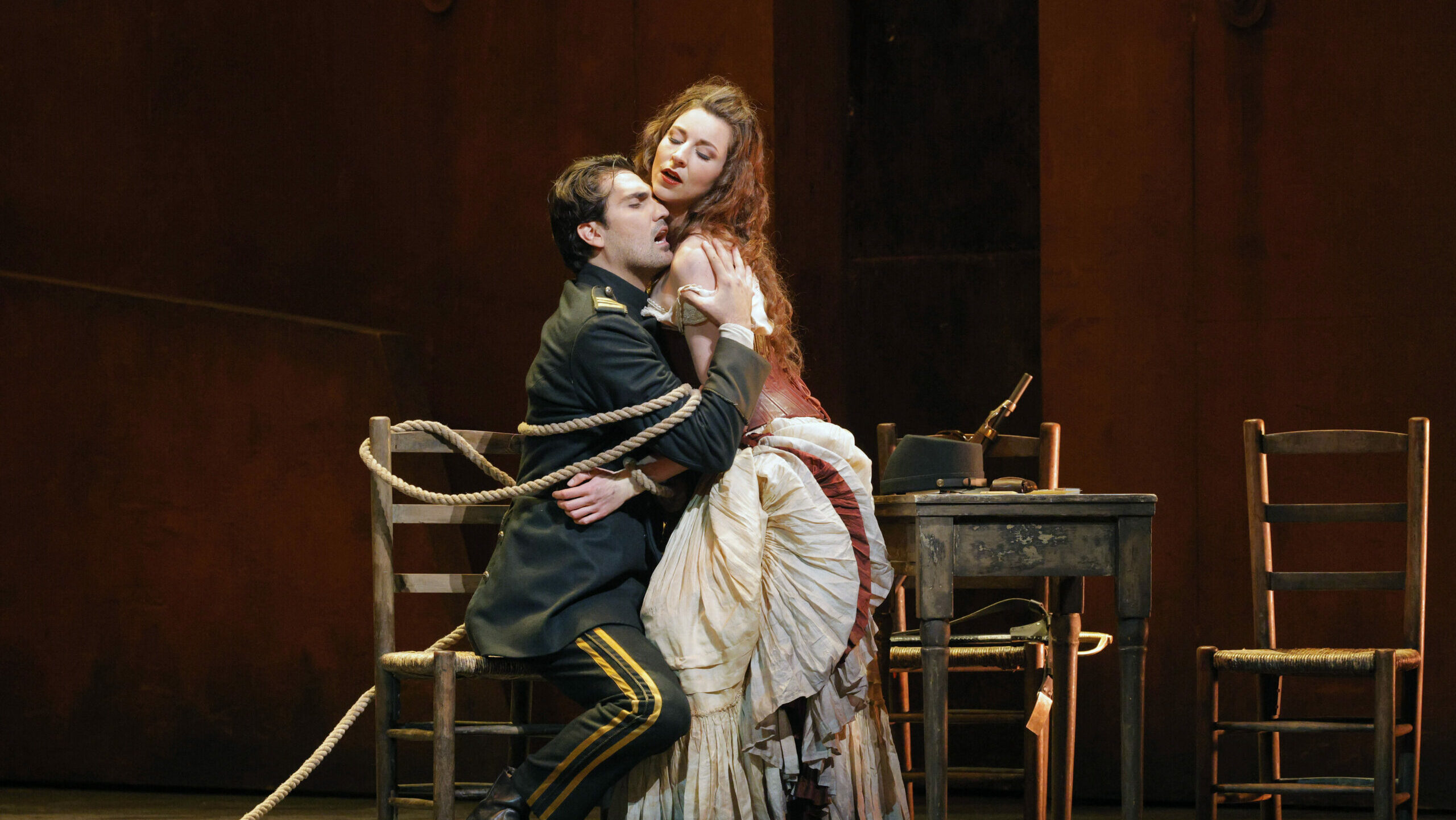
Being the rabid opera fan I am, I’m certain many of you won’t even blink an eye when I confess to having a cache of photos of set designs, costume designs, and even set models (most cherished) from my favorite productions cloistered in the depths of my laptop for my occasional perusal. Once, during a harrowing computer update (remember how horrible those used to be?), when I thought all had been lost, my mother asked if I’d manage to recover my “Opera Porn collection”. The answer, luckily, was ‘yes’ and the nickname stuck.
So imagine my near delirium when LA Opera announced that our season-opening production of Giacomo Puccini’s Madama Butterfly was being borrowed from Madrid and was designed by Ezio Frigerio with costumes by his wife, and frequent collaborateur, Franca Squarciapino. I remember vividly the telecast from The Met of Riccardo Zandonai’s Francesca di Rimini in 1984 — just the set and costumes for Act I were so unimaginably lavish it seemed like a mortal sin just watching (I’ll pause briefly so you can see what I did there). Their work was legendary, most especially at La Scala with the great Giorgio Strehler and Luca Ronconi. Who cares that Maestro Frigerio passed in 2022, or that the Madrid production debuted in 2002, or that I’d hardly heard of any of the singers announced – this was my first chance to see the Master’s work in person and I was ready.
I tip my hat to our Intendant Christopher Koelsch for actually locating a production whose konzept was the making of a film of Madama Butterfly while the opera itself is playing out on sets on a soundstage surrounded by production crew in the 1930’s; nothing could be more appropriate for our industry town. By sheer coincidence, there was a film made of Madame Butterfly in the 1930’s starring Sylvia Sidney and Cary Grantfeaturing some of Puccini’s score as background. It’s a nightmare of yellow-face but is available for the curious on YouTube.
When we entered the Dorothy Chandler Pavillion, the curtain was up and the film crew was busily preparing the set, most of which was obscured, and we could see vintage cameras on dollies to the sides as well as all the lighting in the rafters. They did actually film the action on stage and project the black & white image on the enlarged screen above the proscenium with the supertitles underneath. The Second Assistant Camera operator snapped the clapperboard and we were off.
Our retiring Music Director, James Conlon (yes, I’m still bitter), tore into the score with a fervor that was glorious. All evening long you heard the most resplendent detail from the LA Opera Orchestra, the fullness of the sound countered by a stunning transparency of the composer’s musical architecture. The strings and horns were especially potent and the climax of the love duet brought spontaneous applause before the postlude, due in no small part to the quality and passion of the playing (not to mention the singing, of course).
This may sound ridiculous but the arrival of Yamadori in Act II is one of my favorite moments in this embarrassingly lush score and it was particularly well played. The care taken in pacing Act III only heightened the sense of pending desolation to come. All night long it was honestly like there was oil gushing from the pit it was so scandalously beautiful. I certainly don’t begrudge Maestro Conlon’s time in the sun, and he says he will be back, but he will be sorely missed.
Character tenor par excellence Rodell Aure Rosel made a welcome return as our Goro, in a part he obviously relishes. He’s the kind of performer that keeps the wheels of any production he’s in running smoothly. He’s got every bit of stage trickery up his sleeve and isn’t afraid to use them when the opportunity presents itself. Even revisiting his best comic bit at his curtain call to the delight of the audience. His voice projects clearly into the auditorium and his diction puts the ‘p’ in precise. Bravo. We also had very strong support from Hungjin Sonand Wei Wu as Prince Yamadori and the Bonze, both of whom boomed in all the right places.
It was nice to have Michael Sumuel as the Consul, Sharpless. His debut here was in the Bach St. Matthew Passion which he sang from the pit while the work was presented as ballet. As Jesus, he only had recitative to sing and although it was obvious he had a beautiful bass-baritone, it was nice to discover his easy and charming stage demeanor. He was attentive during the Act II interview with Butterfly when he tries unsuccessfully to break the news to her about the status of her marriage and offered just the right amount of recrimination towards the tenor in the last scene.
Hyona Kim gave us an absolutely spectacular Suzuki. To have a budding Amneris and Ortrud in this role might seem like overkill, but she sang all night with a plangency and dramatic point that is rare in this role. Even as things darkened in the last act towards the inevitable, she held a strong center for the audience’s attention — her “Piangerà tanto, tanto!” was literally overwhelming. She also did more than her part in making the sighting of the ship and subsequent ‘Flower Duet’ very special with her joyousness. It’s a sizable, deliciously plummy mezzo which projects with a lovely evenness across its range. Definitely an artist to keep an eye on.
Our Lt. Pinkerton was the eagerly awaited local debut of Jonathan Tetelman and here I’m afraid I have to temper my enthusiasm. He has a lovely tenor voice but it is slender. It does blossom on the top but not without effort so it’s simply — albeit excitingly — loud without being ringing. If he was singing with the sensitivity of a Schipa or Tagliavini it would be one thing, but his phrasing is definitely choppy at times. He’s undeniably handsome and tall and certainly displays confidence onstage, but sensitivity doesn’t seem to be his strong suit. That said, he is young and there’s certainly room for growth. He already has a recording contract with Deutsche Grammophon, so the potential is obvious to anyone. Nonetheless in a cast of big voices it put him at an obvious disadvantage.
Which brings us to our Butterfly: Ms. Karah Son. And here I’m embarrassed to admit, in spite of her singing this role practically everywhere (including in San Francisco last year) she was not on my radar as yet. Her commitment to the role, both vocally and dramatically, was total. Her famous entrance was lovely, touching the precarious D-flat strongly but with a lovely diminuendo. She offered a touching preview of her interpretation in the poignant moment that followed where she confessed to Pinkerton about her surrendering her own religion for his. I can’t recall ever being as moved by that moment before as I was on Saturday night.
It seems to me that there are two kinds of Butterflies. There are the ones who pace themselves throughout the evening, giving a little here, husbanding there, relying on the text at times so as not to spend too much of the voice. Then, there’s the rarer breed who just pour forth. Ms. Son definitely falls in the latter category. She was unstinting and generous with her vocal gifts all evening long and at the big climaxes she would lean back (engaging her back like the pro she is) and literally flood the theater with sound. It was without doubt the biggest and most secure final B-flat to ‘Un bel di’ I’ve ever heard live, for which she was well rewarded by the audience. But I do not want to give the impression that she lacked nuance. Her’s is a finely judged performance with an enormous amount of detail and the voice is all of the same cloth from top to bottom. I could quibble and say I wanted maybe a little more text painting but it would be churlish in the face of such an honest and heartfelt characterization. She was literally enthralling in the final scene and continued to open the vocal floodgates in her final farewell to her son. My vision may have been slightly blurry at the end.
The audience leapt to their feet the moment the lights went out and I can’t recall the last time that happened. I also noticed in her bio later that not only did she attend the Accademia at La Scala, but she was a protege of Mirella Freni, so there’s that.
The production, originally directed by Mario Gas and now handed over to Brenna Corner, was a mixed bag. For a ‘cinematic’ take, it was surprisingly stage-bound. Scenically there was no representation of the garden and Mr. Frigiero’s unit set was a series of lavish art-deco columns, on an enormous (and whisper-quiet) turntable that resembled a very fancy Singapore hotel of its era. It was then scrubbed of its loveliest elements, and lighting, for the Act II destitution. There was an absolutely gorgeous visual finale to Act I, however, and Butterfly’s vigil was very well staged for maximum pathos.
The most unique part of the staging was that all of the offstage bits, like Butterfly’s entrance and the humming chorus, were done in the ‘soundstage’ off to the sides in full view of the audience. This also made them far more audible for a change. We also got to see the theatrical contraption that gently rained down blossoms on the set from the flies, which held its own special charm.
Still, there really wasn’t a lot of the actual Hollywood ‘production’ happening unlike Christoph Loy’s Salzburg staging of Strauss’s Die Frau ohne Schatten which performed the whole opera as a recording session with all the attendant backstage machinations of microphone placement, agents, engineers, and cast conflicts. A little more of that would have gone a long way.
Ms. Squarciapino’s costumes were almost all rendered in black, white, and shades of gray, save for the three principals, it being a black & white film, after all. Ms. Son got a lovely red and white kimono for her wedding with some carefully placed rhinestones just so we didn’t forget where we were.
So, I came for the sets but stayed for the music making which was pretty glorious. Five more performances remain through October 13th.
Photos: Cory Weaver


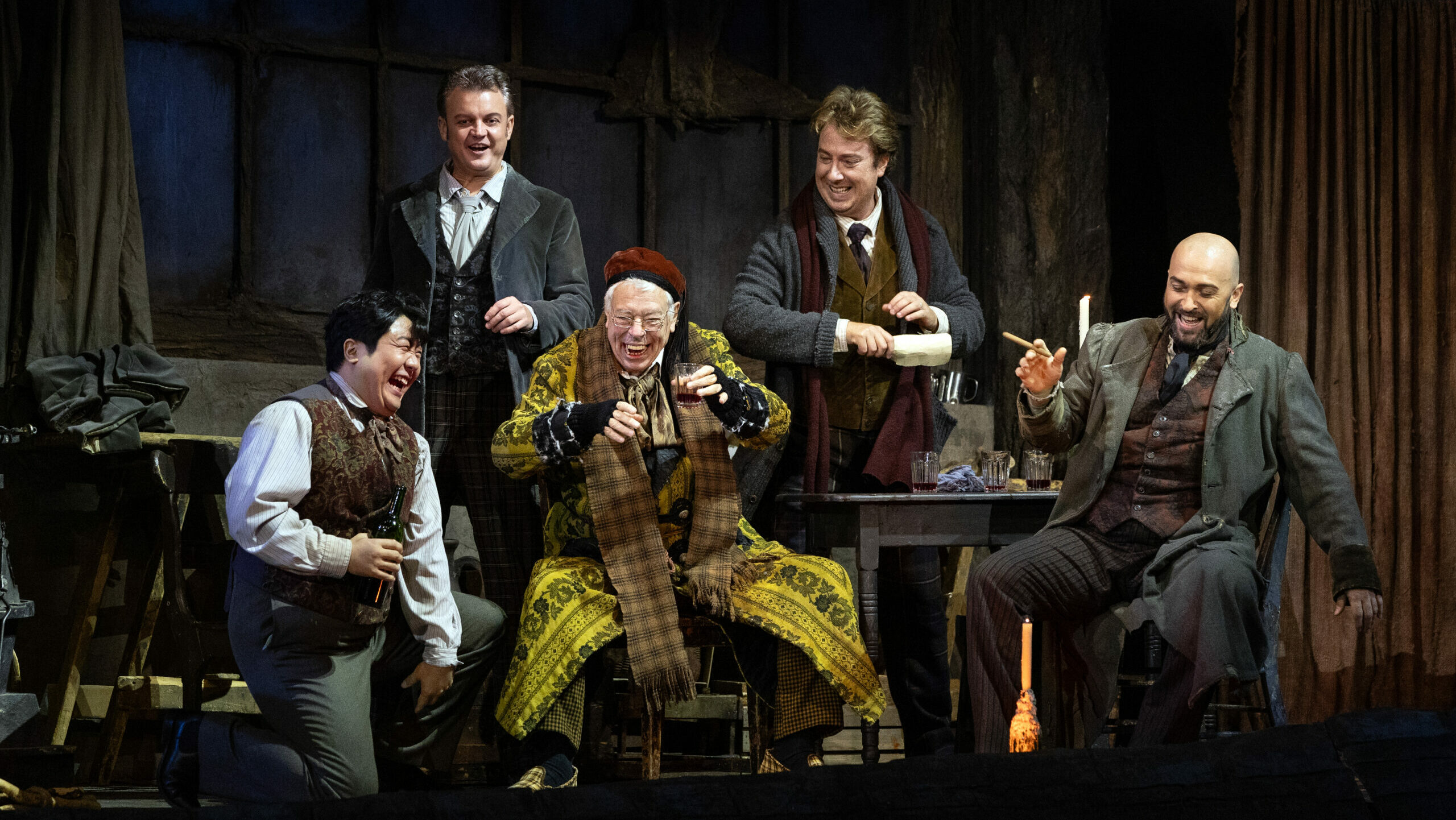
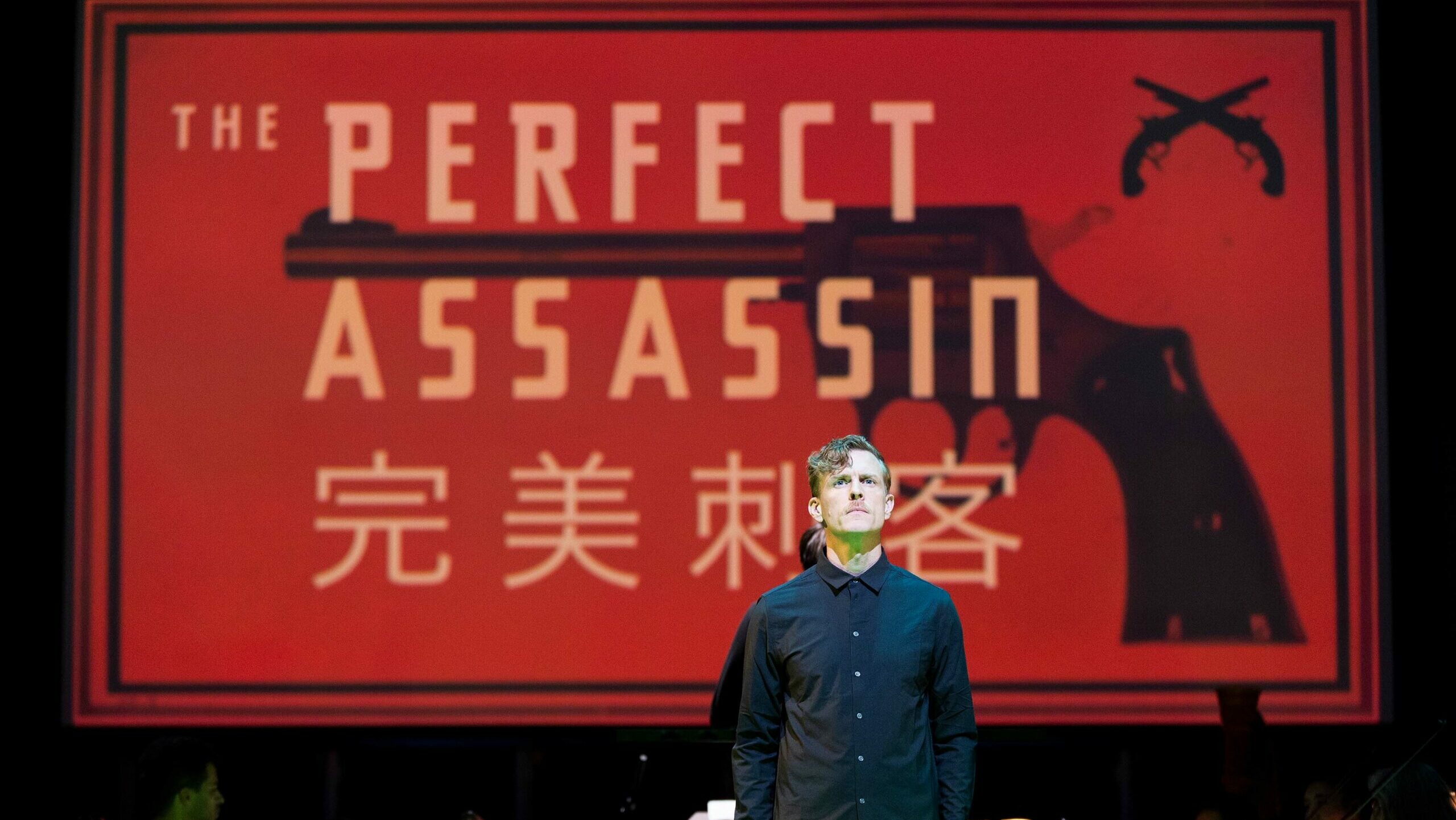
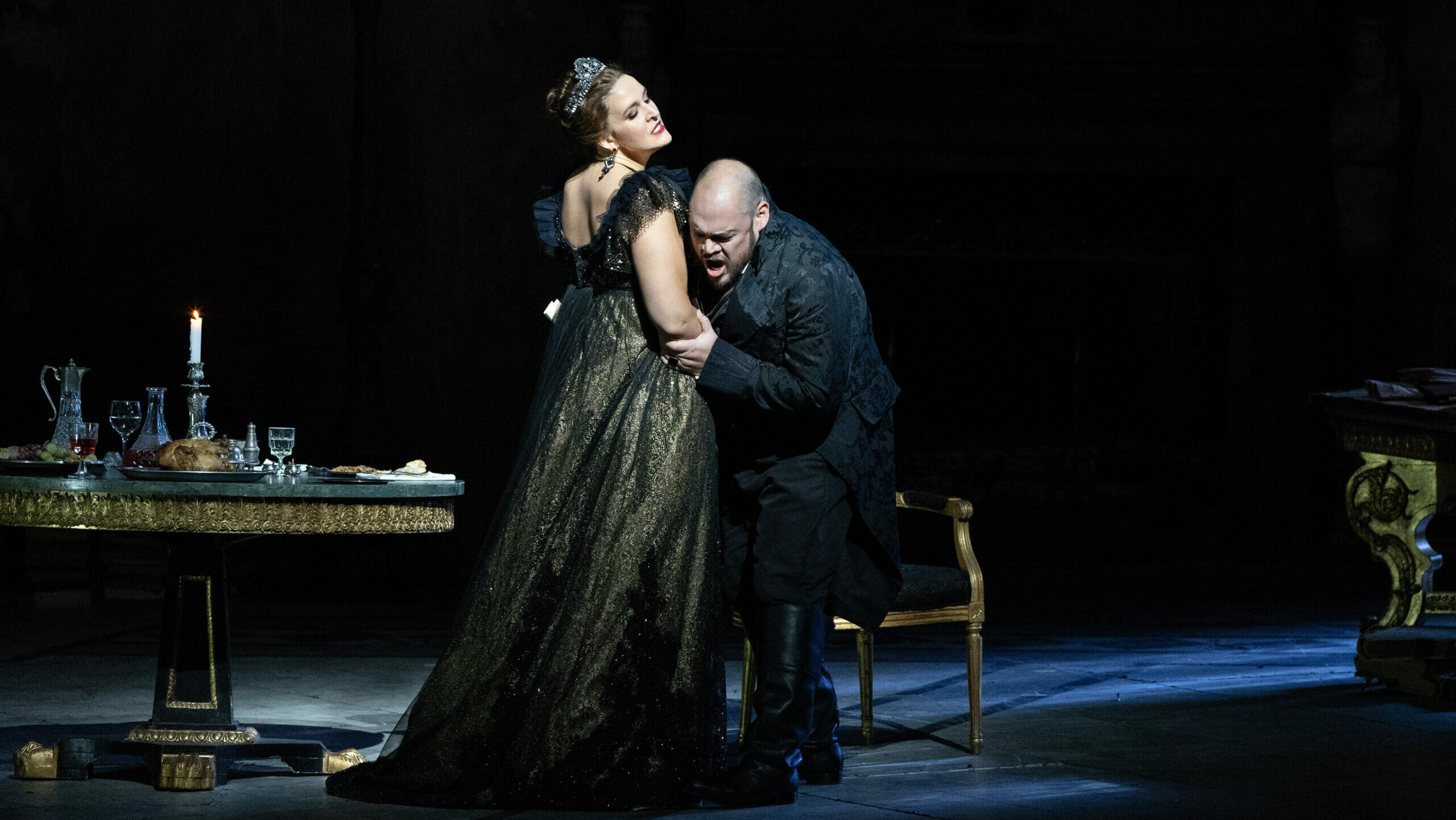

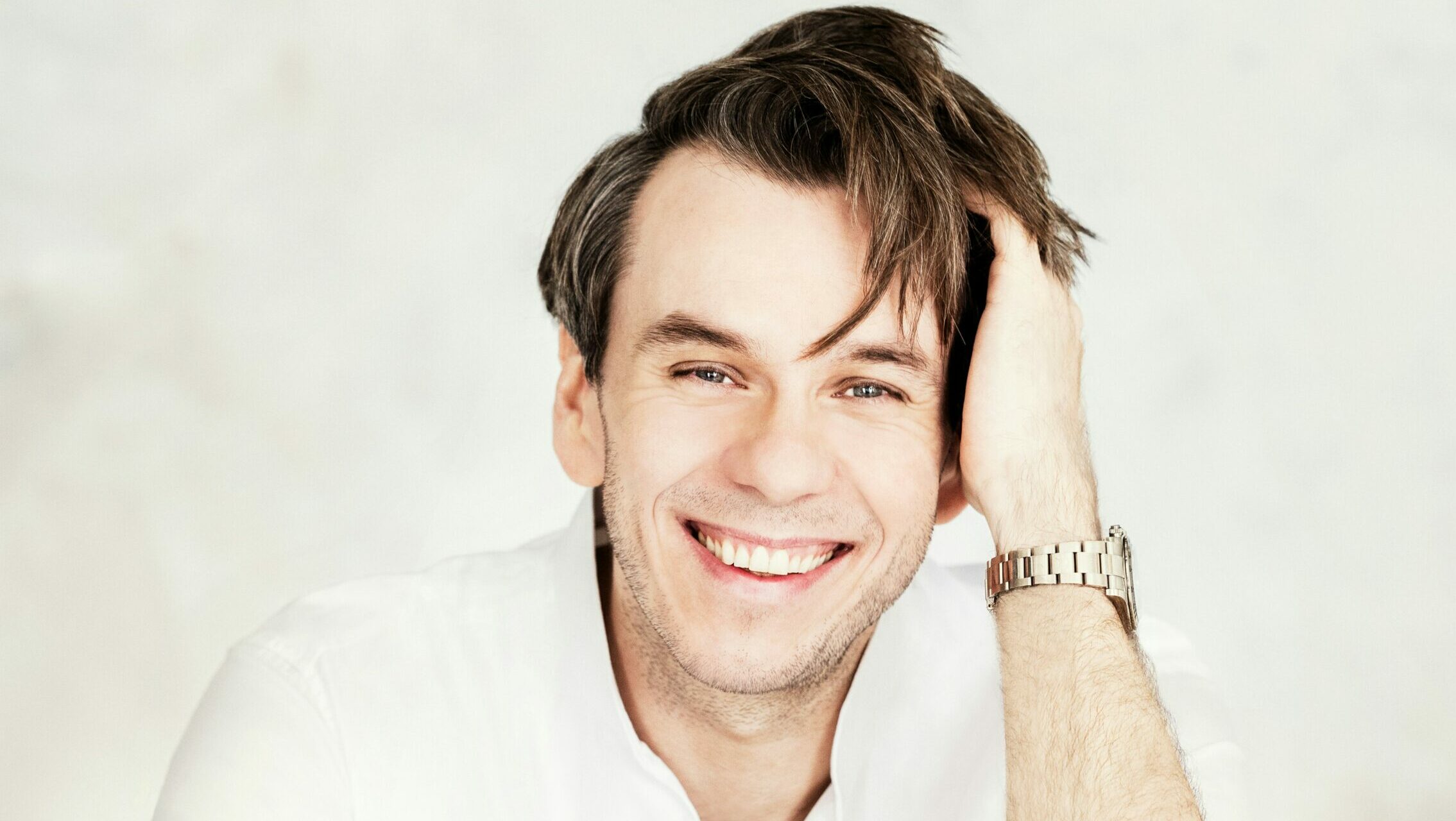
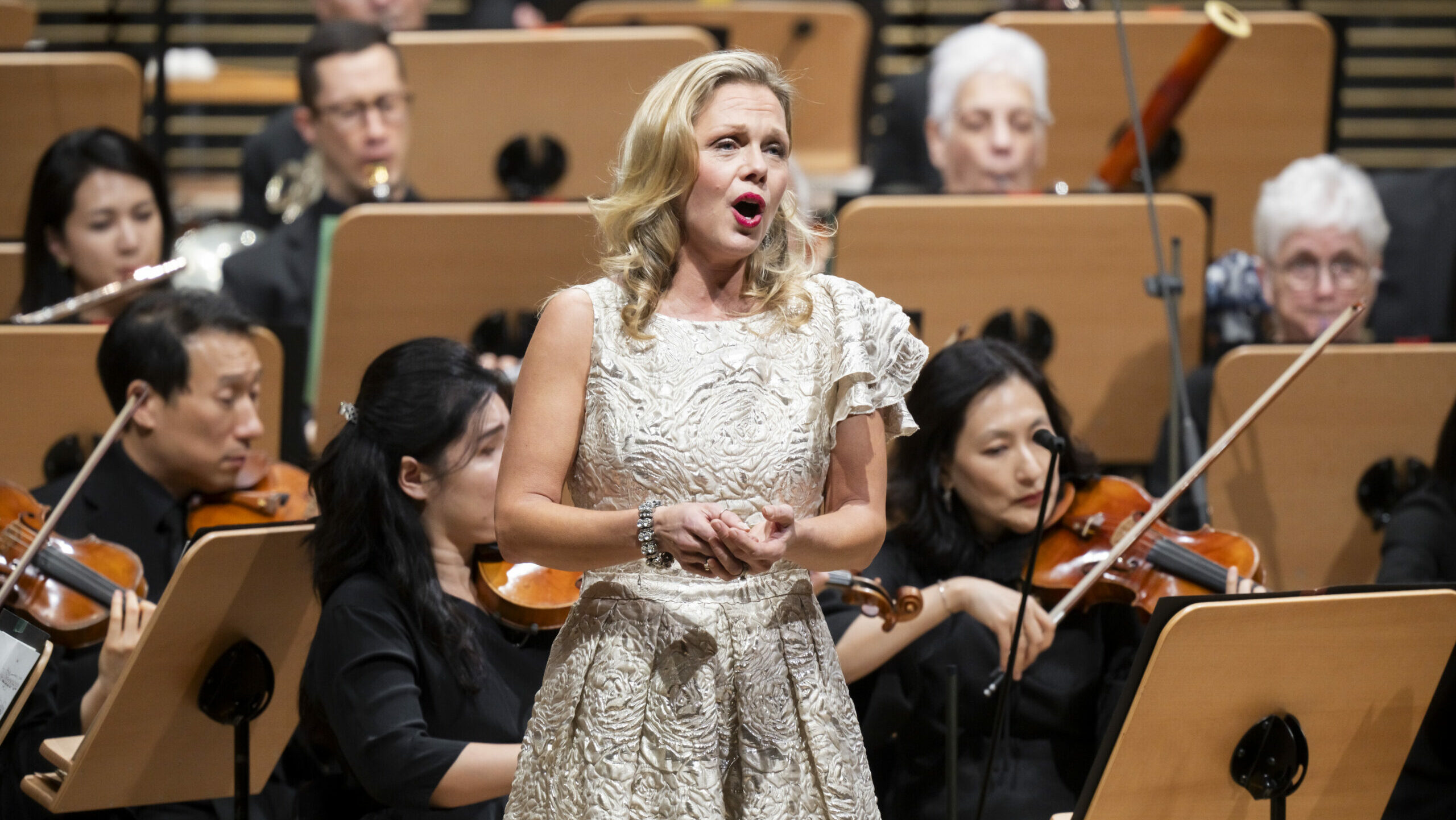
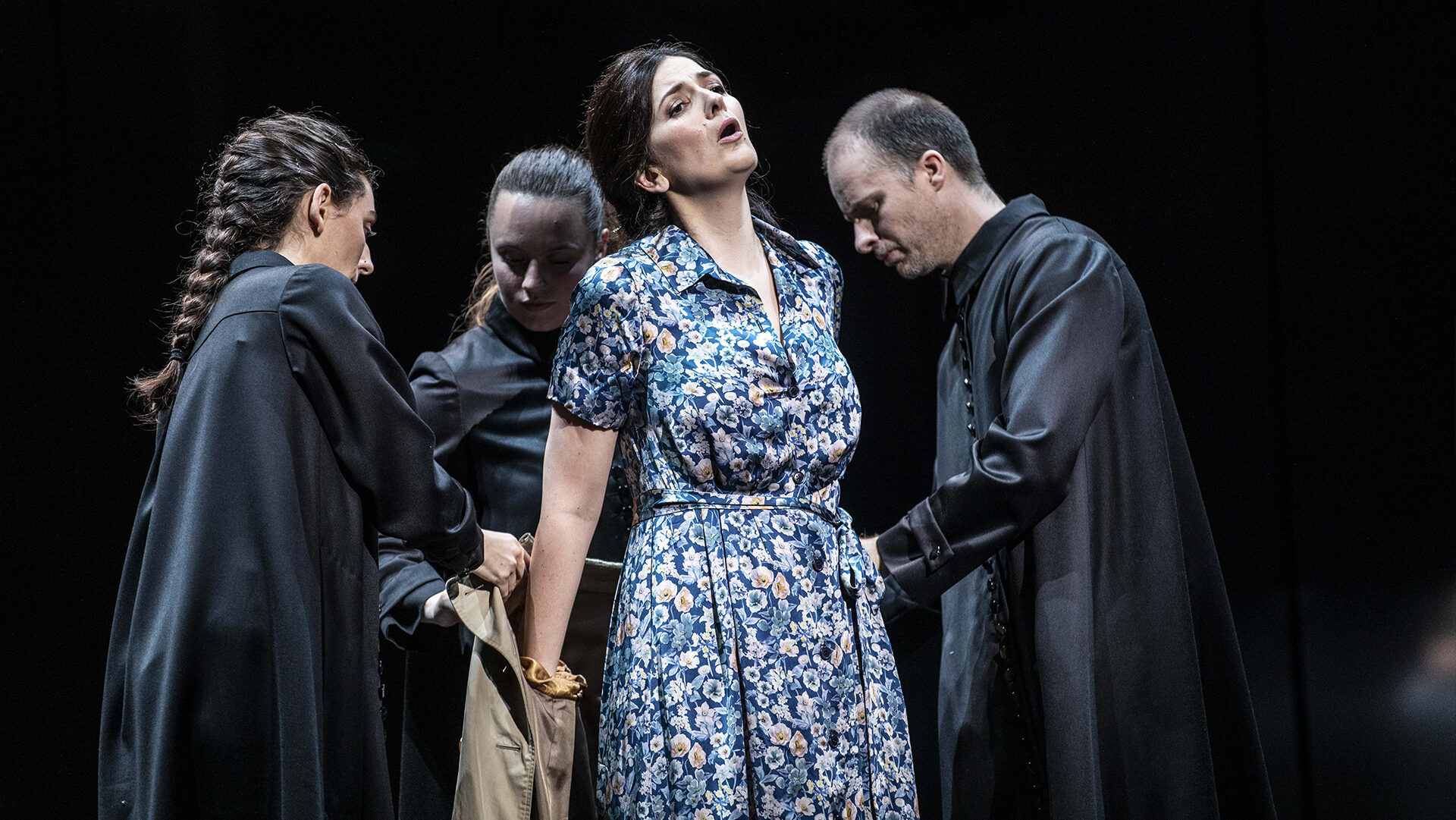
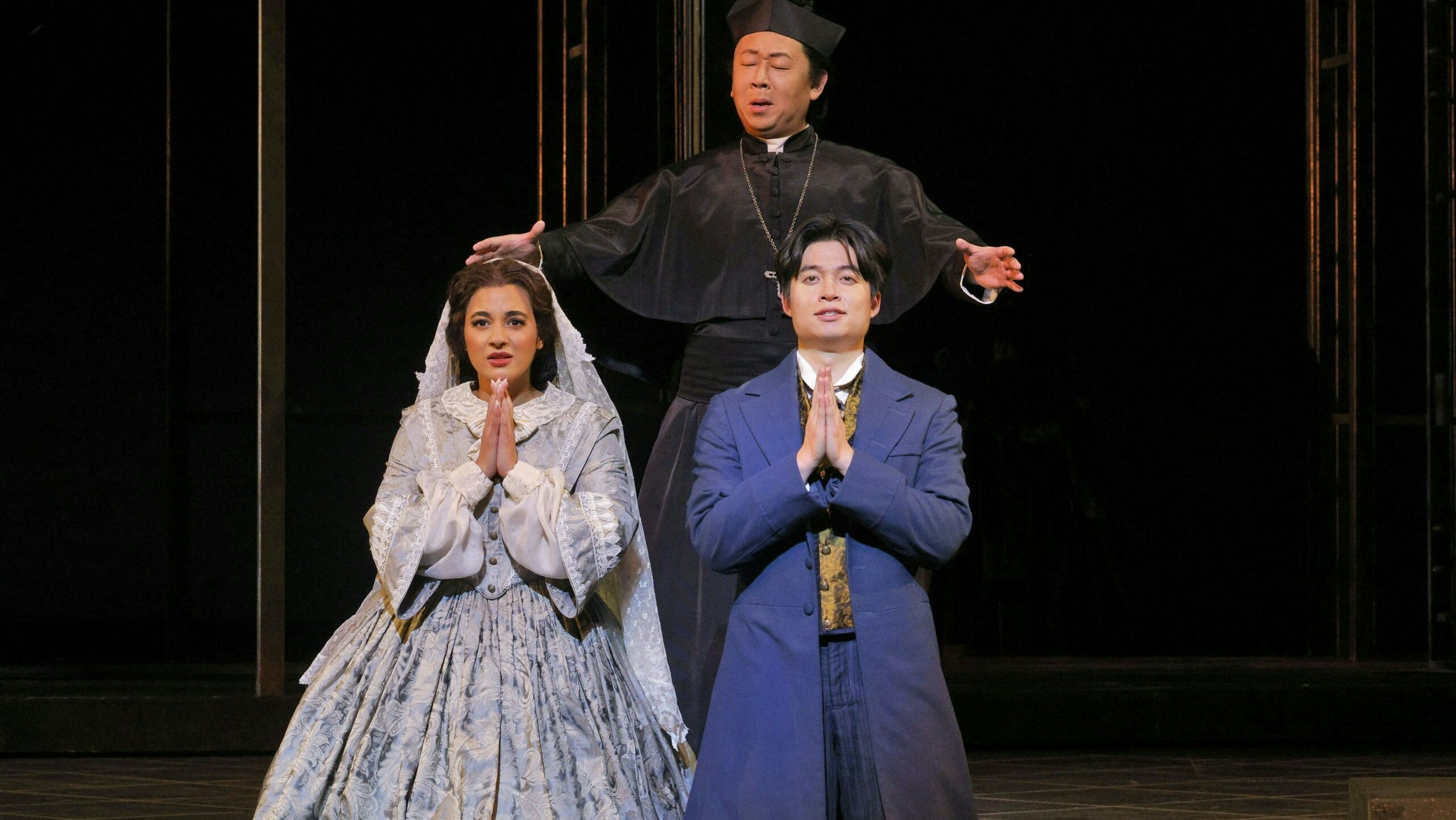
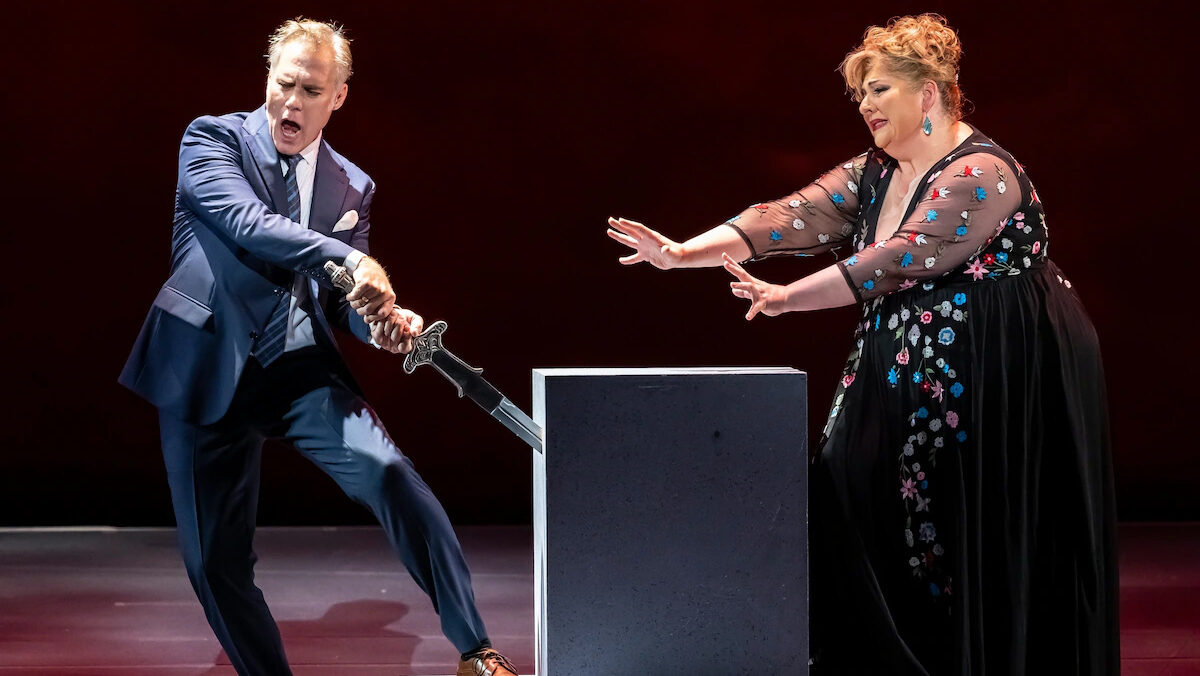
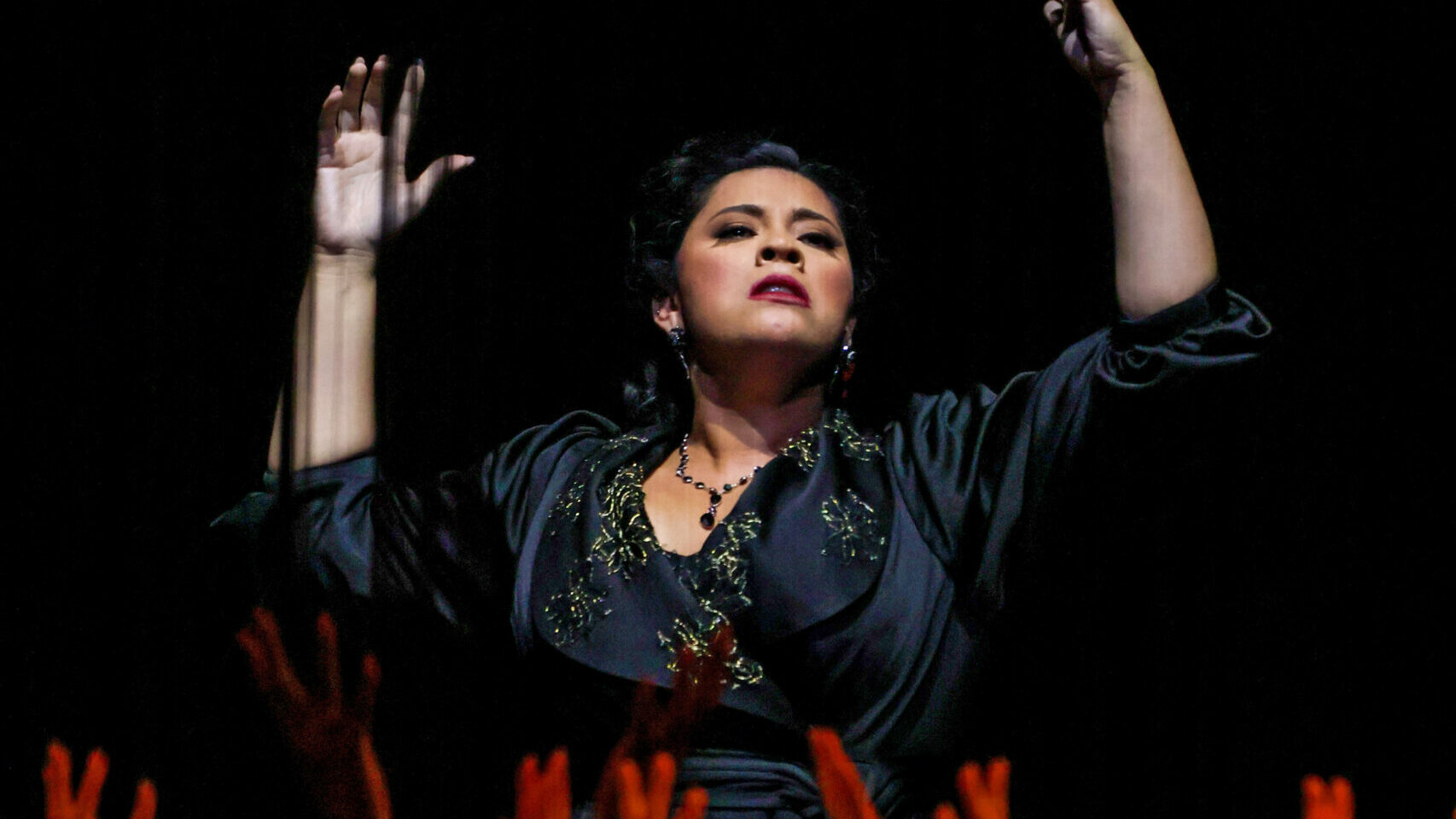
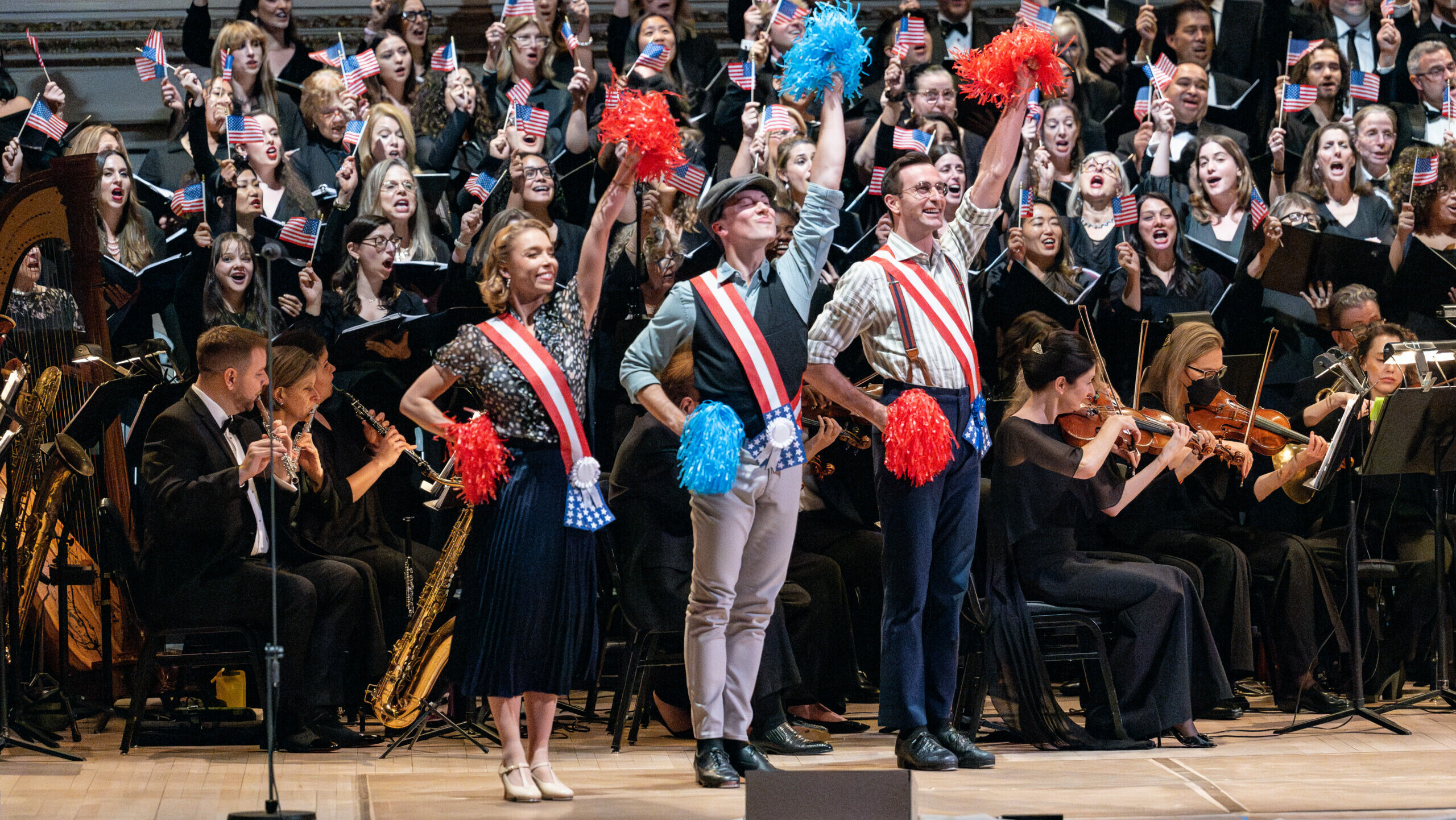
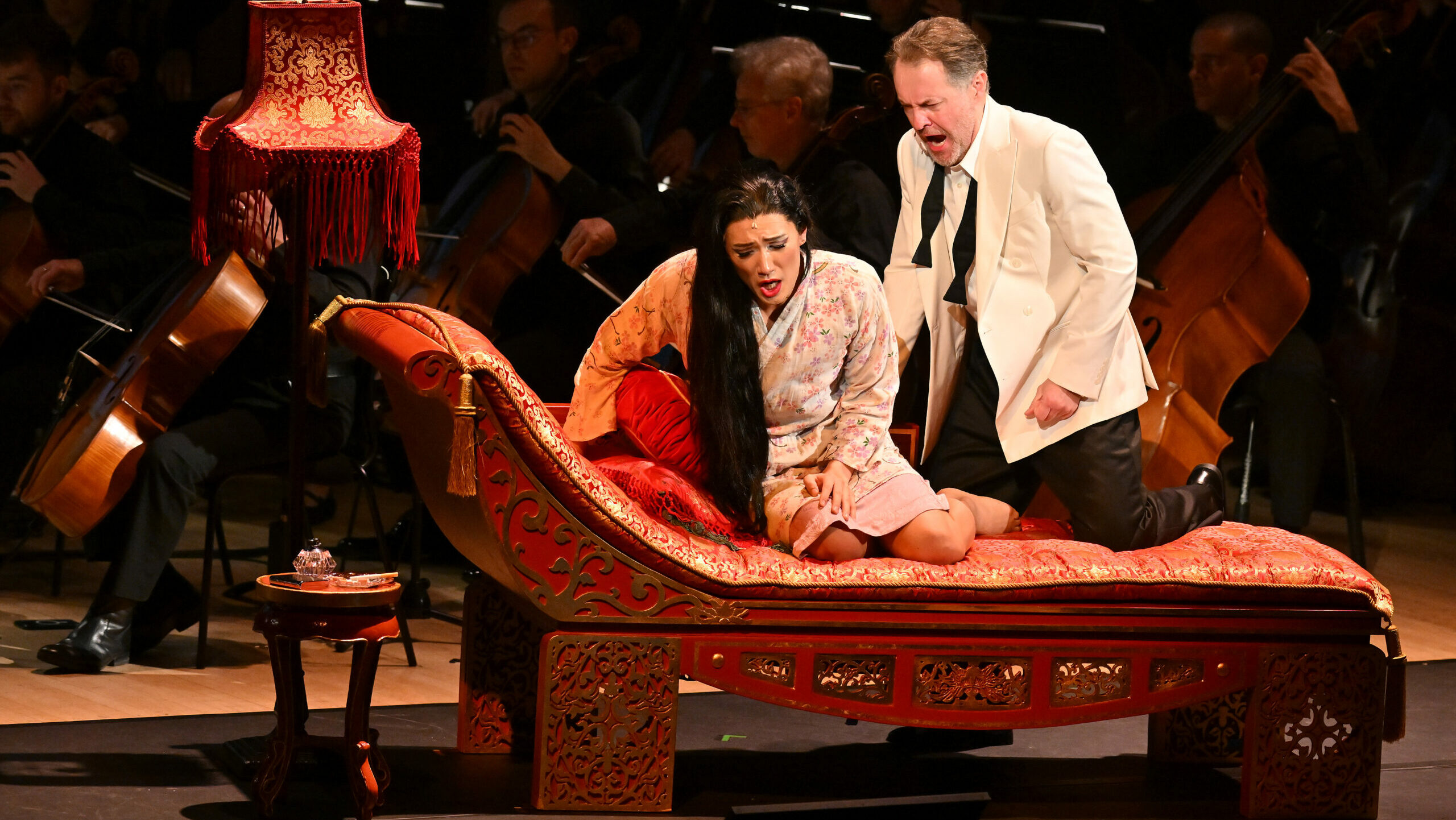
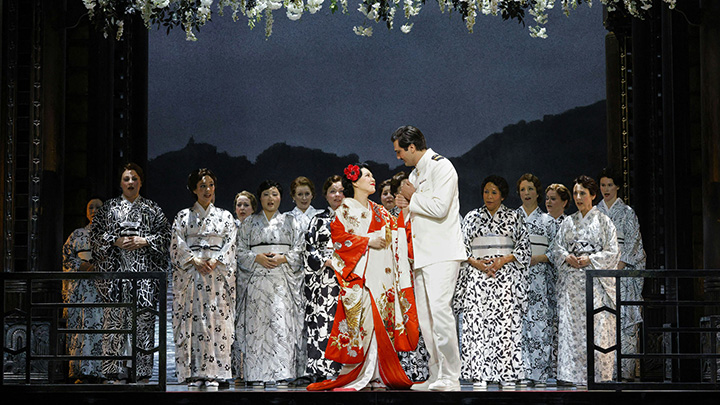
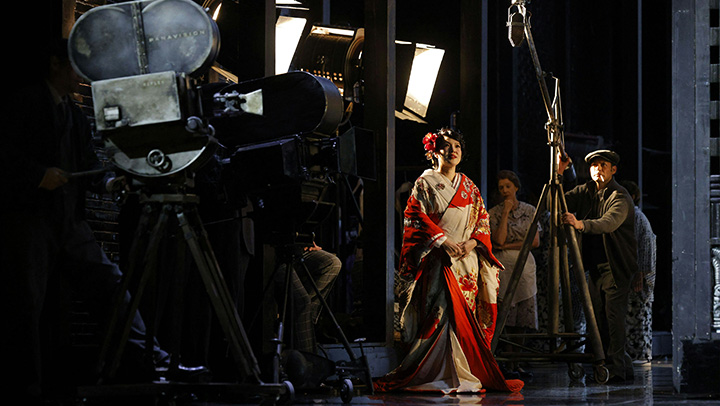
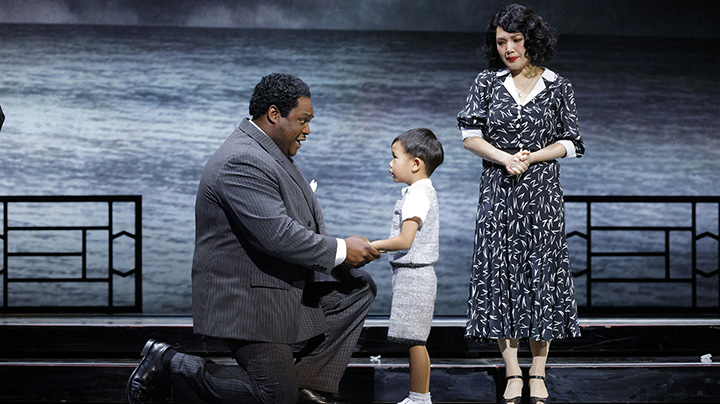
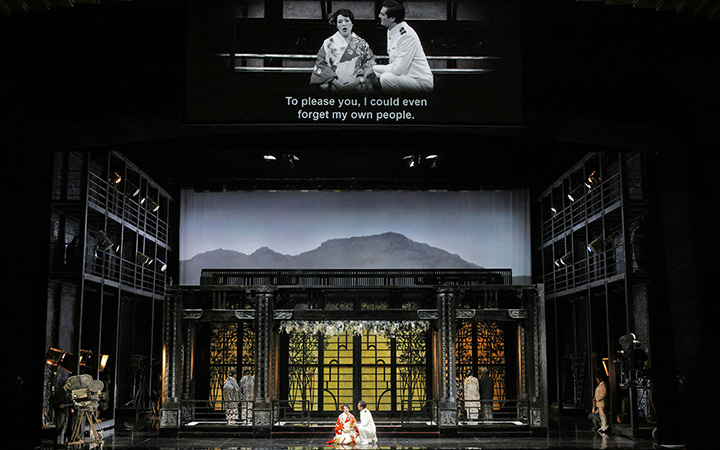






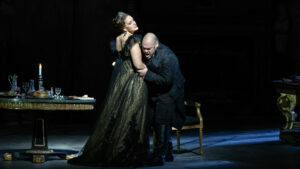
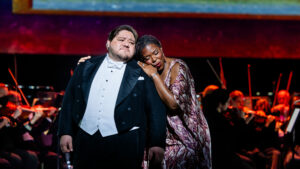



Comments